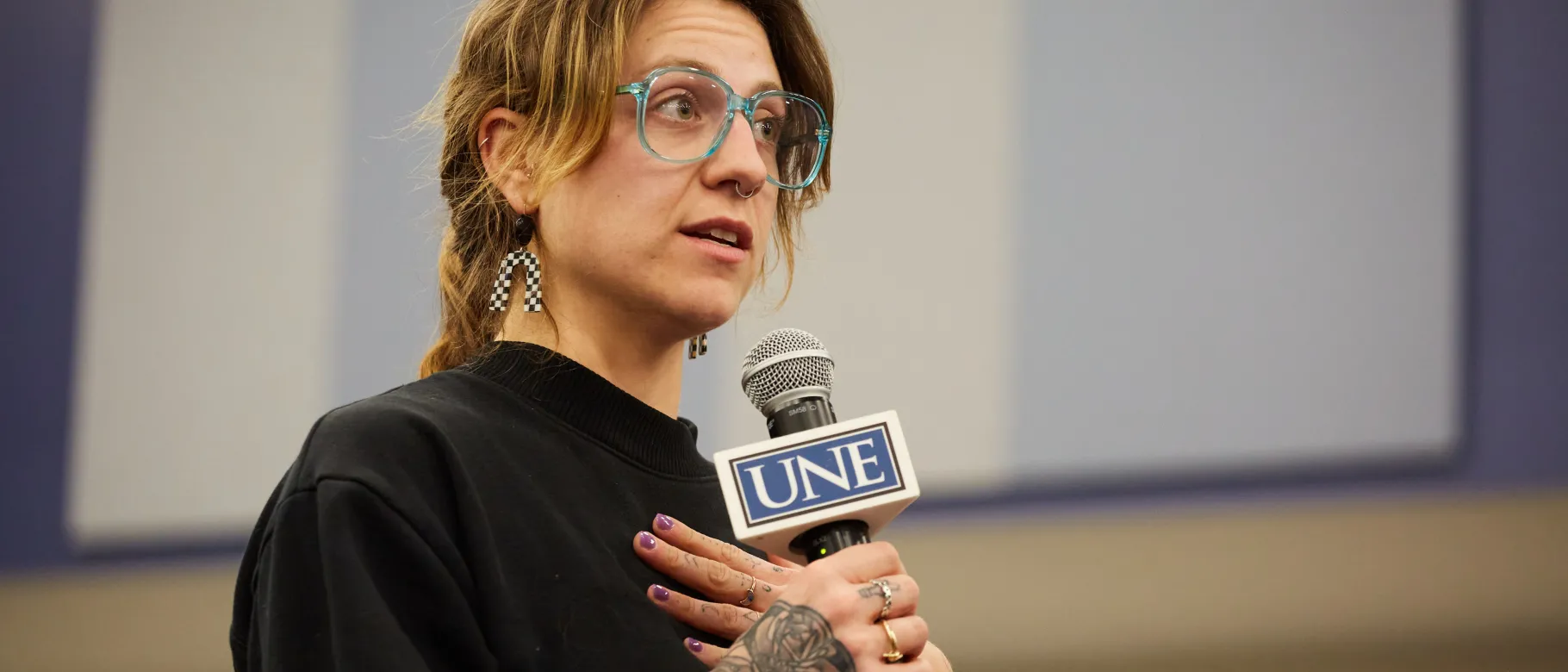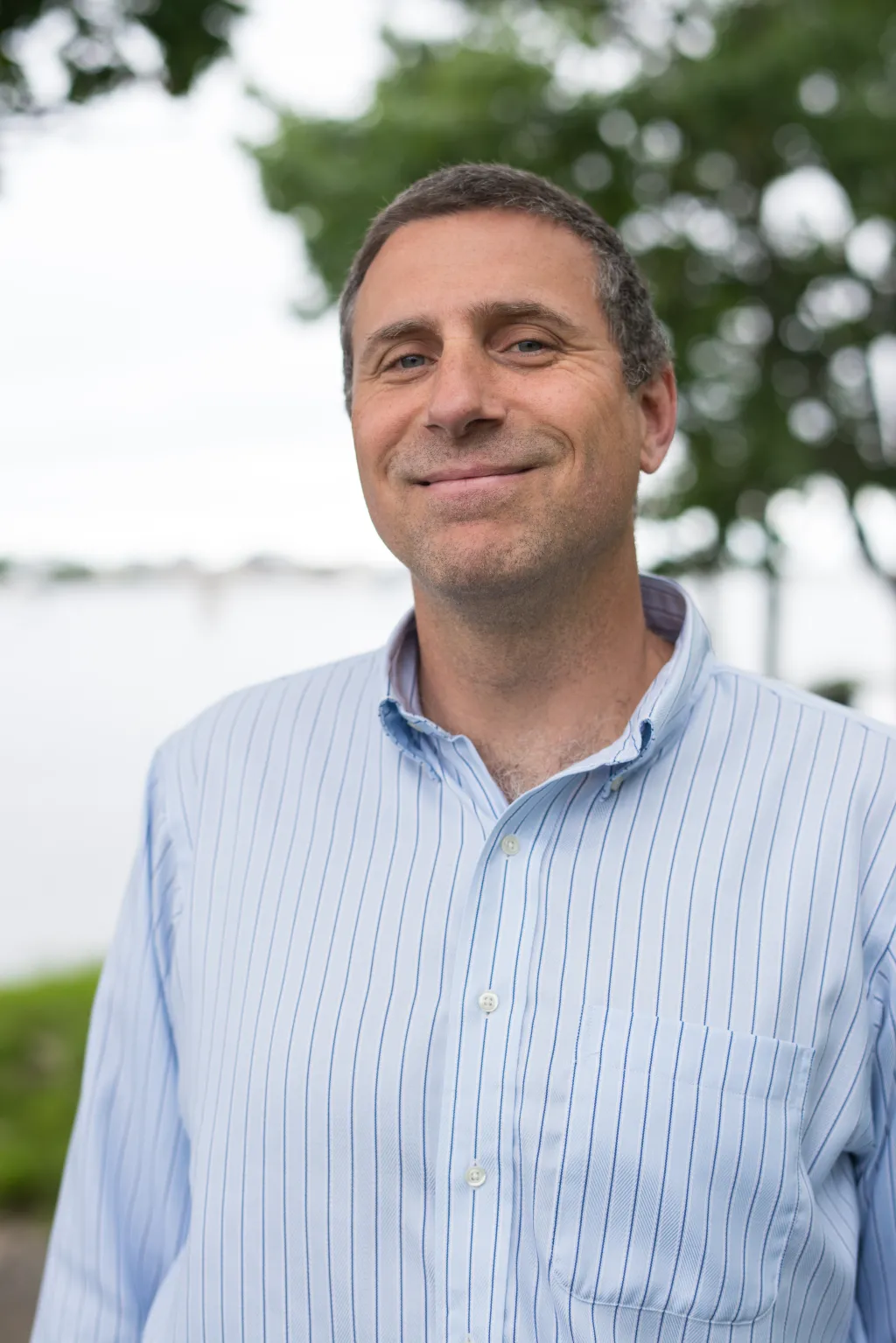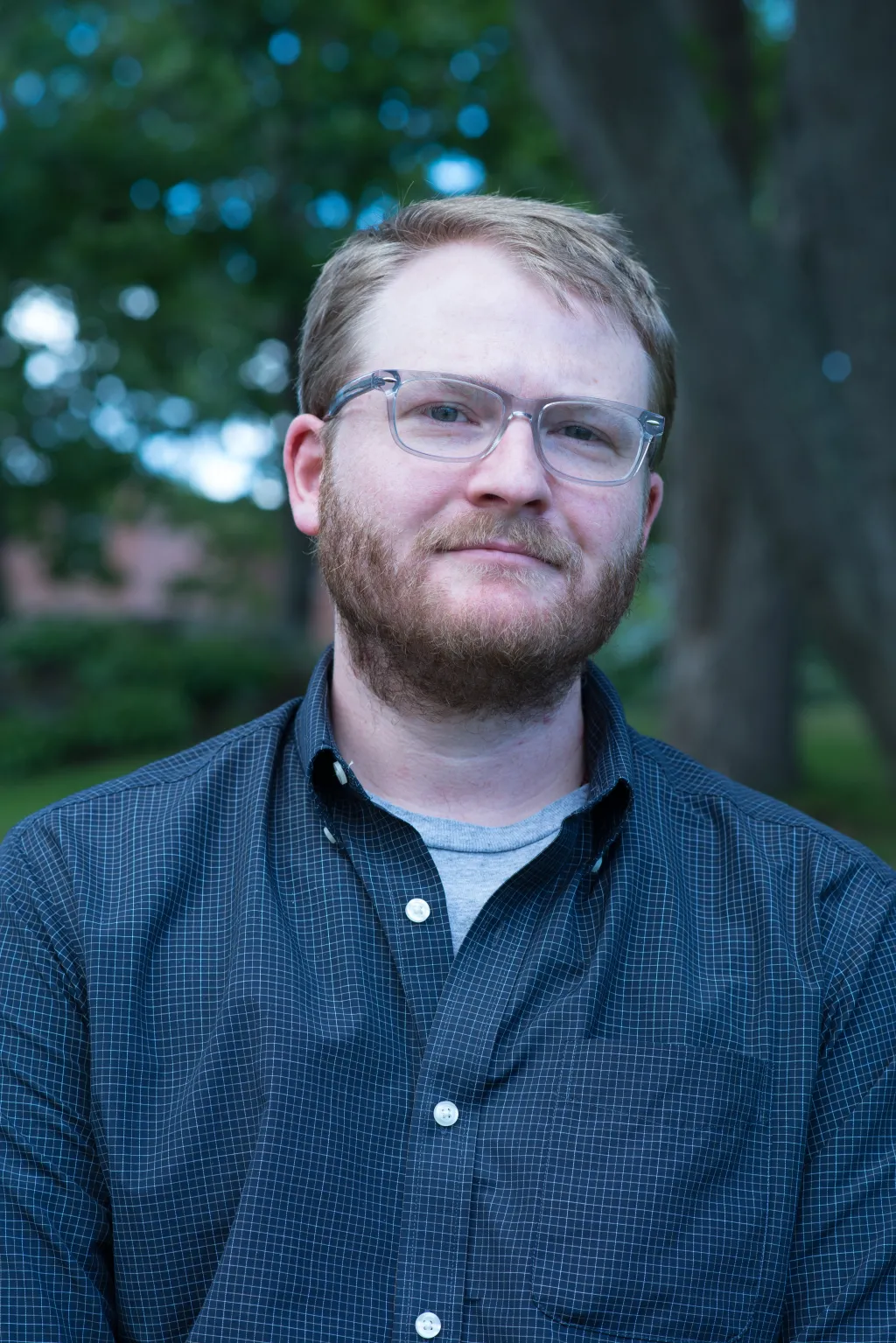UNE joins 33 colleges and universities in project to address crisis facing local news

The volume of community news outlets has been in decline for years, but the University of New England is taking steps to support local news organizations.
Since 2004, the United States has lost more than 2,100 newspapers. Today, two-thirds of U.S. counties have just one daily newspaper, and more than 200 counties have no local newspaper at all. The new Community News program within UNE’s School of Arts and Humanities seeks to help respond to this challenge by strengthening ties to local news outlets in York and Cumberland counties and deliver quality, student-generated reporting.
The program will designate “Community News Fellows” to cover specific beats or stories identified by local media partners, with guidance and support from the University. This initiative is a component of the school’s newly revised Communications and Media Arts major, which enables students to pursue tracks in Sports Media, Video Production, and Reporting and Public Relations.
Notably, it is funded in part by the new Faculty Champions program led by The Center for Community News at the University of Vermont and sponsored by the John S. and James L. Knight Foundation.
This effort is being led by Michael J. Cripps, Ph.D., academic director of the School of Arts and Humanities and professor of Rhetoric and Composition, and Jesse Miller, M.F.A., assistant teaching professor within the school. Miller teaches journalism and serves as faculty advisor to The Bolt, UNE’s student news outlet.
The Faculty Champions program seeks to help address the difficulties facing local news by recognizing faculty leaders who are working to build innovative programs across the U.S. It supports faculty at 33 colleges and universities from 21 states who are starting and growing local news partnerships, including 15 from minority-serving institutions.
“Our faculty and students are excited to be a part of a national effort to connect aspiring journalists to community news outlets to help address challenges in local news reporting,” Cripps remarked. “We are eager to begin conversations with area news outlets to discover how our students might help support local reporting needs.”
The Faculty Champions project is part of a larger initiative to expand experiential learning opportunities for students in the School of Arts and Humanities through credit-bearing and paid internships, curriculum-based projects, and co-curricular activities.

